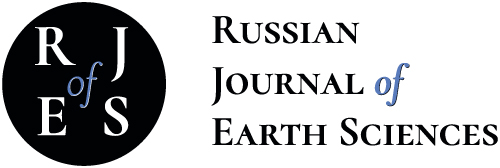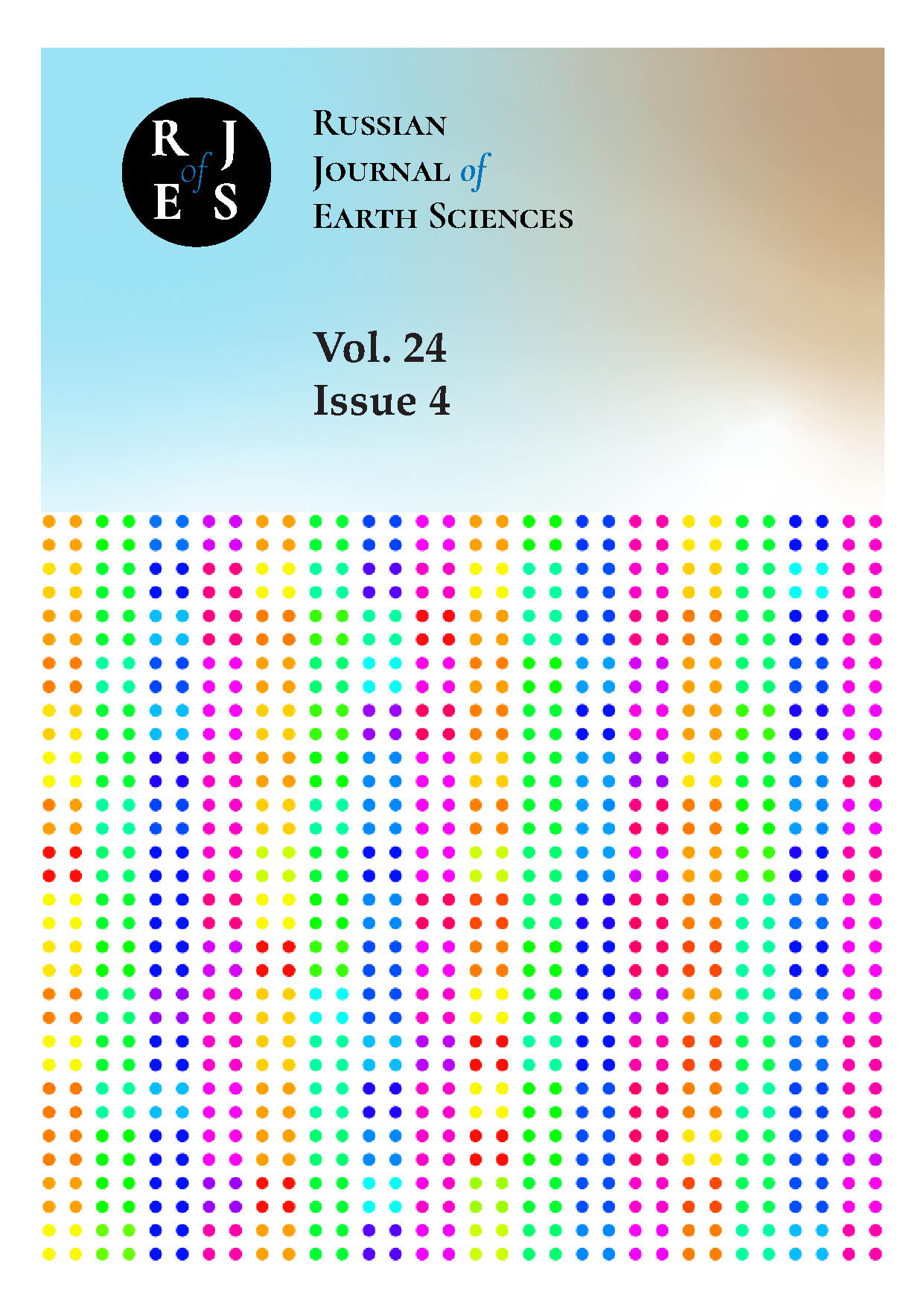с 01.01.1999 по настоящее время
Indralaya, Индонезия
Indralaya, Индонезия
Япония
УДК 55 Геология. Геологические и геофизические науки
УДК 550.34 Сейсмология
УДК 550.383 Главное магнитное поле Земли
ГРНТИ 37.01 Общие вопросы геофизики
ГРНТИ 37.15 Геомагнетизм и высокие слои атмосферы
ГРНТИ 37.25 Океанология
ГРНТИ 37.31 Физика Земли
ГРНТИ 38.01 Общие вопросы геологии
ГРНТИ 36.00 ГЕОДЕЗИЯ. КАРТОГРАФИЯ
ГРНТИ 37.00 ГЕОФИЗИКА
ГРНТИ 38.00 ГЕОЛОГИЯ
ГРНТИ 39.00 ГЕОГРАФИЯ
ГРНТИ 52.00 ГОРНОЕ ДЕЛО
ОКСО 05.00.00 Науки о Земле
ББК 26 Науки о Земле
ТБК 63 Науки о Земле. Экология
BISAC TEC036000 Remote Sensing & Geographic Information Systems
BISAC NAT011000 Environmental Conservation & Protection
BISAC JNF037040 Science & Nature / Trees & Forests
BISAC SCI SCIENCE
Most Peat Hydrological Units (PHU) in South Sumatra, Indonesia, have been threatened by degradation from climate changes, human activities, and environmental factors. This study mapped land cover using Random Forest Classification and identified forest degradation using NDFI (Normalized Difference Forest Index) change analysis in several PHUs of the South Sumatra peatland from 2015 to 2023. We combined Sentinel-1, Sentinel-2, and Landsat-8 data for the land cover classification. Meanwhile, we utilized Landsat-8 to identify forest degradation. Our findings indicate that tree cover significantly decreased in 2015, 2019, and 2023, coinciding with severe drought conditions driven by El Niño events. A significant decrease in forest cover in 2019 was suggested by low tree cover, up to 47.1% of the total area of 1.054 million ha. Therefore, grassland and bare/sparse vegetation had more significant coverage percentages, reaching 22.89% and 11.40%, respectively, in 2019. Deforestation varied but generally decreased from 2015 to 2023, according to the analysis of NDFI changes. Vegetation regrowth increased notably from 2016 to 2020 and remained relatively stable afterward. In addition, forest disturbance decreased from 2015 to 2020 but slightly increased in the last few years. Although two PHUs have encountered more severe degradation, their peatland ecosystems included inside them have distinct characteristics. Specifically, the PHU of Sungai Saleh – Sungai Sugihan encompasses cultivated areas, whereas the PHU of Sungai Sugihan – Sungai Lumpur comprises protected areas. These findings highlight the need for restoration and sustainable land management to prevent further degradation
Peatland, Land cover, Degradation, Random Forest, NDFI, South Sumatra, Remote Sensing
1. Adams, J. (1995), Classification of multispectral images based on fractions of endmembers: Application to land-cover change in the Brazilian Amazon, Remote Sensing of Environment, 52(2), 137–154, https://doi.org/10.1016/0034-4257(94)00098-8.
2. Amoakoh, A. O., P. Aplin, K. T. Awuah, et al. (2021), Testing the Contribution of Multi-Source Remote Sensing Features for Random Forest Classification of the Greater Amanzule Tropical Peatland, Sensors, 21(10), 3399, https://doi.org/10.3390/s21103399. EDN: https://elibrary.ru/VMPTIH
3. Asmuß, T., M. Bechtold, and B. Tiemeyer (2019), On the Potential of Sentinel-1 for High Resolution Monitoring of Water Table Dynamics in Grasslands on Organic Soils, Remote Sensing, 11(14), 1659, https://doi.org/10.3390/rs11141659. EDN: https://elibrary.ru/FEDVHB
4. Astuti, R. (2021), Governing the ungovernable: The politics of disciplining pulpwood and palm oil plantations in Indonesia’s tropical peatland, Geoforum, 124, 381–391, https://doi.org/10.1016/j.geoforum.2021.03.004. EDN: https://elibrary.ru/BGPZAE
5. Breiman, L. (2001), Random Forests, Machine Learning, 45(1), 5–32, https://doi.org/10.1023/A:1010933404324. EDN: https://elibrary.ru/ARROTH
6. Budiman, I., R. D. Hapsari, C. I. Wijaya, and E. N. N. Sari (2021), The Governance of Risk Management on Peatland: A Case Study of Restoration in South Sumatra, Indonesia, World Resources Institute, https://doi.org/10.46830/wriwp.20.00008. EDN: https://elibrary.ru/ECBTRX
7. Carrasco, L., A. W. O’Neil, R. D. Morton, and C. S. Rowland (2019), Evaluating Combinations of Temporally Aggregated Sentinel-1, Sentinel-2 and Landsat 8 for Land Cover Mapping with Google Earth Engine, Remote Sensing, 11(3), 288, https://doi.org/10.3390/rs11030288.
8. Chokkalingam, U., Suyanto, R. P. Permana, et al. (2006), Community fire use, resource change, and livelihood impacts: The downward spiral in the wetlands of southern Sumatra, Mitigation and Adaptation Strategies for Global Change, 12(1), 75–100, https://doi.org/10.1007/s11027-006-9038-5. EDN: https://elibrary.ru/COQSOY
9. Cobb, A. R., A. M. Hoyt, L. Gandois, et al. (2017), How temporal patterns in rainfall determine the geomorphology and carbon fluxes of tropical peatlands, Proceedings of the National Academy of Sciences, 114(26), https://doi.org/10.1073/pnas.1701090114.
10. Cooper, H. V., S. Evers, P. Aplin, N. Crout, M. P. B. Dahalan, and S. Sjogersten (2020), Greenhouse gas emissions resulting from conversion of peat swamp forest to oil palm plantation, Nature Communications, 11(1), https://doi.org/10.1038/s41467-020-14298-w. EDN: https://elibrary.ru/LBCTHG
11. Dohong, A. (2017), Bolstering Peatlands Restoration in Indonesia through 3Rs Approach, in Developing International Collaborations to Address Fire and Other Conservation Issues in Central Kalimantan, Indonesia, https://doi.org/10.13140 /RG.2.2.33080.19200.
12. Dohong, A., A. A. Aziz, and P. Dargusch (2017), A review of the drivers of tropical peatland degradation in South-East Asia, Land Use Policy, 69, 349–360, https://doi.org/10.1016/j.landusepol.2017.09.035.
13. Dommain, R., J. Couwenberg, P. H. Glaser, et al. (2014), Carbon storage and release in Indonesian peatlands since the last deglaciation, Quaternary Science Reviews, 97, 1–32, https://doi.org/10.1016/j.quascirev.2014.05.002. EDN: https://elibrary.ru/SQMVBL
14. Filgueiras, R., E. C. Mantovani, D. Althoff, E. I. Fernandes Filho, and F. F. da Cunha (2019), Crop NDVI Monitoring Based on Sentinel 1, Remote Sensing, 11(12), 1441, https://doi.org/10.3390/rs11121441. EDN: https://elibrary.ru/BYLJPJ
15. Gómez, C., J. C. White, and M. A. Wulder (2016), Optical remotely sensed time series data for land cover classification: A review, ISPRS Journal of Photogrammetry and Remote Sensing, 116, 55–72, https://doi.org/10.1016/j.isprsjprs.2016.03.008. EDN: https://elibrary.ru/WVHHGL
16. Harrison, M. E., J. B. Ottay, L. J. D’Arcy, et al. (2019), Tropical forest and peatland conservation in Indonesia: Challenges and directions, People and Nature, 2(1), 4–28, https://doi.org/10.1002/pan3.10060.
17. Hidayah, H., J. Reidinar, N. S. Tjokorda, and W. Arief (2018), Indonesia’s Deforestation Dropped 60 Percent in 2017, but There’s More to Do, https://www.wri.org/insights/indonesias-deforestation-dropped-60-percent-2017-theres-moredo.
18. Hooijer, A., S. Page, J. G. Canadell, M. Silvius, J. Kwadijk, H. Wösten, and J. Jauhiainen (2010), Current and future CO2 emissions from drained peatlands in Southeast Asia, Biogeosciences, 7(5), 1505–1514, https://doi.org/10.5194/bg-7-1505-2010.
19. Humas (2016), President Jokowi Establishes Peat Land Restoration Agency (BRG), https://setkab.go.id/en/presidentjokowi-establishes-peat-land-restoration-agency-brg/.
20. Khakim, M. Y. N., A. A. Bama, I. Yustian, P. Poerwono, T. Tsuji, and T. Matsuoka (2020), Peatland subsidence and vegetation cover degradation as impacts of the 2015 El niño event revealed by Sentinel-1A SAR data, International Journal of Applied Earth Observation and Geoinformation, 84, 101,953, https://doi.org/10.1016/j.jag.2019.101953. EDN: https://elibrary.ru/TDIWTP
21. Khakim, M. Y. N., A. A. Bama, and T. Tsuji (2022), Spatiotemporal Variations of Soil Moisture and Groundwater Level in a South Sumatra Peatland, Indonesia During 2015-2018, GEOGRAPHY, ENVIRONMENT, SUSTAINABILITY, 15(2), 58–70, https://doi.org/10.24057/2071-9388-2021-137. EDN: https://elibrary.ru/RNQGUN
22. KLHK (2020), Karhutla Monitoring System, https://sipongi.menlhk.go.id/.
23. Malinowski, R., S. Lewiński, M. Rybicki, et al. (2020), Automated Production of a Land Cover/Use Map of Europe Based on Sentinel-2 Imagery, Remote Sensing, 12(21), 3523, https://doi.org/10.3390/rs12213523. EDN: https://elibrary.ru/CXHDLB
24. Miettinen, J., A. Hooijer, C. Shi, et al. (2012), Extent of industrial plantations on Southeast Asian peatlands in 2010 with analysis of historical expansion and future projections, GCB Bioenergy, 4(6), 908–918, https://doi.org/10.1111/j.1757-1707.2012.01172.x.
25. Miettinen, J., A. Hooijer, R. Vernimmen, S. C. Liew, and S. E. Page (2017), From carbon sink to carbon source: extensive peat oxidation in insular Southeast Asia since 1990, Environmental Research Letters, 12(2), 024,014, https://doi.org/10.1088/1748-9326/aa5b6f.
26. Numata, I., A. J. Elmore, M. A. Cochrane, C. Wang, J. Zhao, and X. Zhang (2022), Deforestation, plantation-related land cover dynamics and oil palm age-structure change during 1990-2020 in Riau Province, Indonesia, Environmental Research Letters, 17(9), 094,024, https://doi.org/10.1088/1748-9326/ac8a61. EDN: https://elibrary.ru/FDPZKU
27. Nurhayati, A. D., B. Hero Saharjo, L. Sundawati, S. Syartinilia, and M. A. Cochrane (2021), Forest and Peatland Fire Dynamics in South Sumatra Province, Forest and Society, pp. 591–603, https://doi.org/10.24259/fs.v5i2.14435. EDN: https://elibrary.ru/XXFJOY
28. Page, S. E., J. O. Rieley, and C. J. Banks (2011), Global and regional importance of the tropical peatland carbon pool, Global Change Biology, 17(2), 798–818, https://doi.org/10.1111/j.1365-2486.2010.02279.x. EDN: https://elibrary.ru/XYOLNX
29. Pettorelli, N., K. Safi, and W. Turner (2014), Satellite remote sensing, biodiversity research and conservation of the future, Philosophical Transactions of the Royal Society B: Biological Sciences, 369(1643), 20130,190, https://doi.org/10.1098/rstb.2013.0190.
30. Poortinga, A., K. Tenneson, A. Shapiro, et al. (2019), Mapping Plantations in Myanmar by Fusing Landsat-8, Sentinel-2 and Sentinel-1 Data along with Systematic Error Quantification, Remote Sensing, 11(7), 831, https://doi.org/10.3390/rs11070831.
31. Putra, R., E. Sutriyo, S. Kadir, and I. Iskandar (2019), Understanding of Fire Distribution in the South Sumatra Peat Area During the Last Two Decades, International Journal of GEOMATE, 16(54), https://doi.org/10.21660/2019.54.8243.
32. Sakti, A. D., and S. Tsuyuki (2015), Spectral Mixture Analysis (SMA) of Landsat Imagery for Land Cover Change Study of Highly Degraded Peatland in Indonesia, The International Archives of the Photogrammetry, Remote Sensing and Spatial Information Sciences, XL-7/W3, 495–501, https://doi.org/10.5194/isprsarchives-XL-7-W3-495-2015.
33. Schultz, M., J. G. P. W. Clevers, S. Carter, et al. (2016), Performance of vegetation indices from Landsat time series in deforestation monitoring, International Journal of Applied Earth Observation and Geoinformation, 52, 318–327, https://doi.org/10.1016/j.jag.2016.06.020.
34. Shih, H., D. A. Stow, K. Chang, D. A. Roberts, and K. G. Goulias (2021), From land cover to land use: applying random forest classifier to Landsat imagery for urban land-use change mapping, Geocarto International, 37(19), 5523–5546, https://doi.org/10.1080/10106049.2021.1923827. EDN: https://elibrary.ru/RKXARK
35. Souza Jr., C. M., D. A. Roberts, and M. A. Cochrane (2005), Combining spectral and spatial information to map canopy damage from selective logging and forest fires, Remote Sensing of Environment, 98(2-3), 329–343, https://doi.org/10.1016/j.rse.2005.07.013.
36. Souza Jr., C. M., J. V. Siqueira, M. H. Sales, et al. (2013), Ten-Year Landsat Classification of Deforestation and ForestDegradation in the Brazilian Amazon, Remote Sensing, (5), 5493–5513, https://doi.org/10.3390/rs5115493.
37. Tian, S., X. Zhang, J. Tian, and Q. Sun (2016), Random Forest Classification of Wetland Landcovers from Multi-Sensor Data in the Arid Region of Xinjiang, China, Remote Sensing, 8(11), 954, https://doi.org/10.3390/rs8110954. EDN: https://elibrary.ru/YHIBRE
38. Toca, L., R. R. E. Artz, C. Smart, et al. (2023), Potential for Peatland Water Table Depth Monitoring Using Sentinel-1 SAR Backscatter: Case Study of Forsinard Flows, Scotland, UK, Remote Sensing, 15(7), 1900, https://doi.org/10.3390/rs15071900. EDN: https://elibrary.ru/SELAGY
39. Uda, S. K., G. Schouten, and L. Hein (2020), The institutional fit of peatland governance in Indonesia, Land Use Policy, 99, 103,300, https://doi.org/10.1016/j.landusepol.2018.03.031. EDN: https://elibrary.ru/JHYSDH
40. Urban, M., C. Berger, T. E. Mudau, et al. (2018), Surface Moisture and Vegetation Cover Analysis for Drought Monitoring in the Southern Kruger National Park Using Sentinel-1, Sentinel-2, and Landsat-8, Remote Sensing, 10(9), 1482, https://doi.org/10.3390/rs10091482. EDN: https://elibrary.ru/YKKQAP
41. Vijay, V., S. L. Pimm, C. N. Jenkins, and S. J. Smith (2016), The Impacts of Oil Palm on Recent Deforestation and Biodiversity Loss, PLOS ONE, 11(7), e0159,668, https://doi.org/10.1371/journal.pone.0159668. EDN: https://elibrary.ru/WFKUDS
42. Yamada, Y. (2015), Preliminary Study on the Radar Vegetation Index (RVI) Application to Actual Paddy Fields by ALOS/PALSAR Full-polarimetry SAR Data, The International Archives of the Photogrammetry, Remote Sensing and Spatial Information Sciences, XL-7/W3, 129–131, https://doi.org/10.5194/isprsarchives-XL-7-W3-129-2015.
43. Yuwati, T. W., D. Rachmanadi, Pratiwi, M. Turjaman, et al. (2021), Restoration of Degraded Tropical Peatland in Indonesia: A Review, Land, 10(11), 1170, https://doi.org/10.3390/land10111170. EDN: https://elibrary.ru/PALHPN
44. Zheng, X., C. Wang, Y. Tang, et al. (2023), Adaptive High Coherence Temporal Subsets SBAS-InSAR in Tropical Peatlands Degradation Monitoring, Remote Sensing, 15(18), 4461, https://doi.org/10.3390/rs15184461. EDN: https://elibrary.ru/BQZBYW















